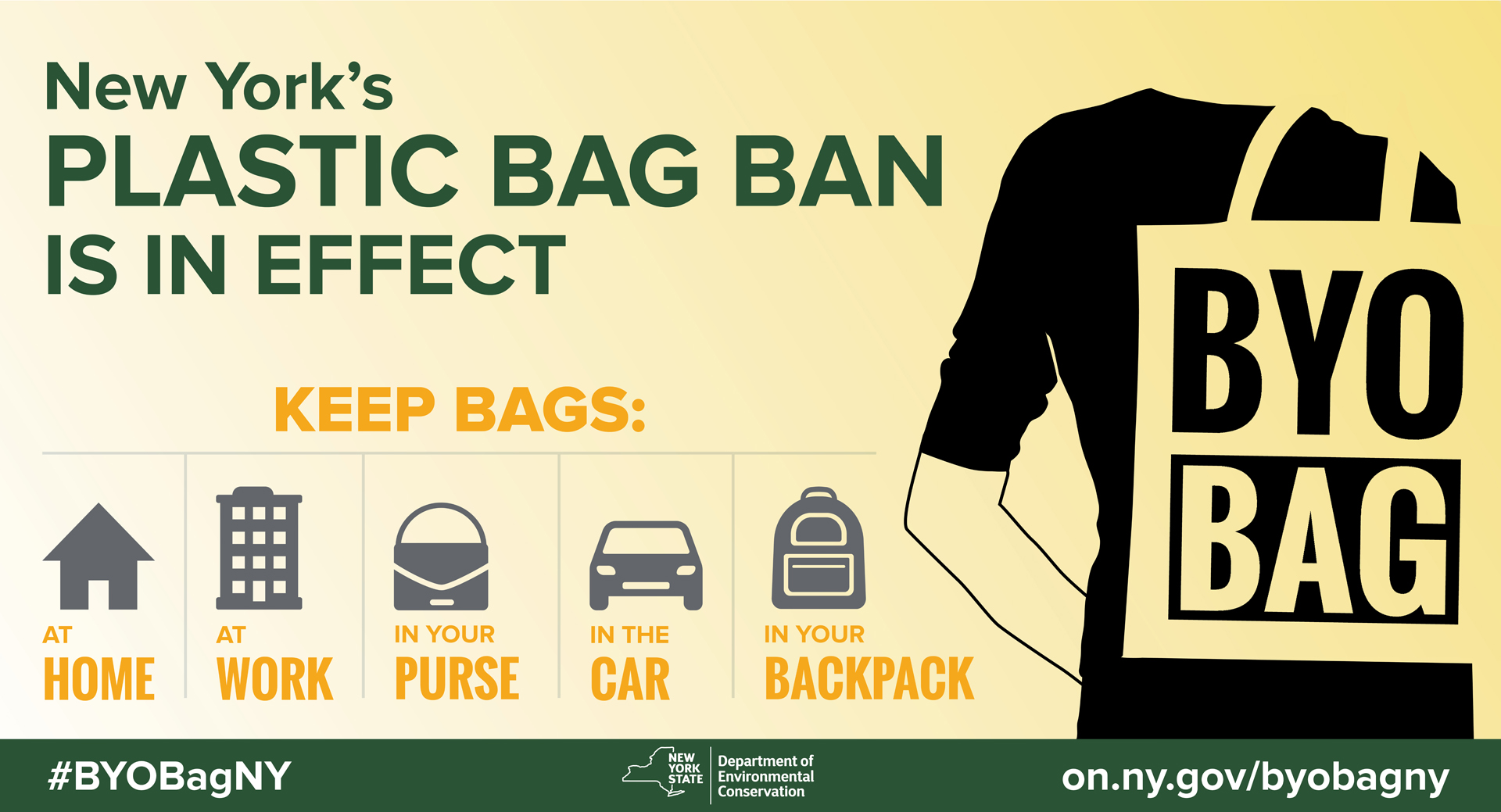Subscribe
Sign up for updates on sales tax news.
Only sales tax vendors that sell tangible personal property in a locality where the fee is imposed must collect the fee when they provide a paper carryout bag to a customer. For a listing of the localities that enacted the fee, visit Publication 718-B, Paper Carryout Bag Reduction Fee.
The five-cent fee applies to each paper carryout bag provided to a customer by a sales tax vendor of tangible personal property, even if the vendor does not sell any tangible personal property or a service to the customer, and regardless of whether the tangible personal property or service sold is exempt from sales tax. Certain bags and certain customers are exempt from the fee (as discussed below).
Paper carryout bag means a paper bag, other than an exempt bag, that is provided by a sales tax vendor to a customer to carry tangible personal property.
Plastic carryout bag means any plastic bag, other than an exempt bag, that is provided to a customer by a sales tax vendor to be used by the customer to carry tangible personal property.
Exempt bag means a bag that is:
For a complete and current list of exempt bags, see DEC’s Bag Waste Reduction Law: Information for Manufacturers and Retailers.
Publication 718-B, Paper Carryout Bag Reduction Fee, lists those localities that have enacted the five-cent paper carryout bag reduction fee.
The paper carryout bag reduction fee:
The receipt must separately state the bag fee and include the number of bags provided.
Sales tax vendors must report and remit the fee on Schedule E, Paper Carryout Bag Reduction Fee, which is filed as part of their periodic sales tax return.
The paper carryout bag reduction fee is not included when calculating the vendor collection credit.
Important: Any vendor who charges a customer for a paper carryout bag in a jurisdiction that does not impose a fee (or charges in excess of a locally imposed fee) is selling tangible personal property subject to sales tax.
The five-cent paper carryout bag reduction fee does not apply to:
Other entities (such as religious or charitable organizations) that may be exempt from the payment of sales tax are subject to the five-cent paper carryout bag reduction fee.
Only sales tax vendors who sell tangible personal property in a locality that has imposed the fee must collect the fee if they provide paper carryout bags to customers. This includes businesses such as:
Businesses that do not sell any tangible personal property are not required to collect the fee. In addition, certain bags are exempt from the fee, including:
Publication 718-B, Paper Carryout Bag Reduction Fee, lists those localities that have enacted the paper bag fee and will be updated as additional localities impose the bag fee.
No. Any business selling tangible personal property in a locality that imposes the fee must charge the fee on the paper carryout bags that it provides to a customer, regardless of whether the items sold are subject to sales tax.
The paper bag fee must be listed as a separate line item, and you must include the number of bags provided. When identifying the fee on the receipt, you may use an abbreviation such as “PCBRF” or similar code that clearly indicates that it represents the paper bag fee.
No, businesses cannot remit a locally administered fee to the Tax Department. Your business should continue to follow the local law requirements.
The business is selling tangible personal property that is subject to tax. Sales tax is due on the amount charged for the paper bag. Report each sale of a paper bag that is subject to tax for the jurisdiction in which the sale was made. Do not report these sales on Schedule E, Paper Carryout Bag Reduction Fee.
If your business charges more than the five-cent paper bag fee, the additional amount charged in excess of five cents is considered a sale of a bag and is subject to sales tax. The five-cent fee must be a separate line item on the receipt or statement of price, and it must be remitted with your sales tax return on Schedule E, Paper Carryout Bag Reduction Fee. The excess amount is reported on your sales tax return in the jurisdiction where the sale is made.
If your business offers a discount that is not reimbursed by a third party on items sold to customers who use their own bags, the discount represents a reduction in the price of the items sold. You should subtract the amount of the discount from the sales price before calculating the amount of sales tax due on the sale.
Customers purchasing items using SNAP or WIC benefits (whether used as full or partial payment for the items purchased) are exempt from paying the fee. If a business chooses to charge SNAP or WIC customers a fee for paper bags in a locality that has not enacted a paper bag fee, sales tax is due on the amount charged for a bag.

As of October 19, 2020, all retailers and entities that collect sales tax are prohibited from distributing plastic carryout bags to customers, with limited exceptions.
Additional information is available at Bag Waste Reduction Law: Information for Manufacturers and Retailers. For assistance with compliance requirements email plasticbags@dec.ny.gov.
Sign up for updates on sales tax news.